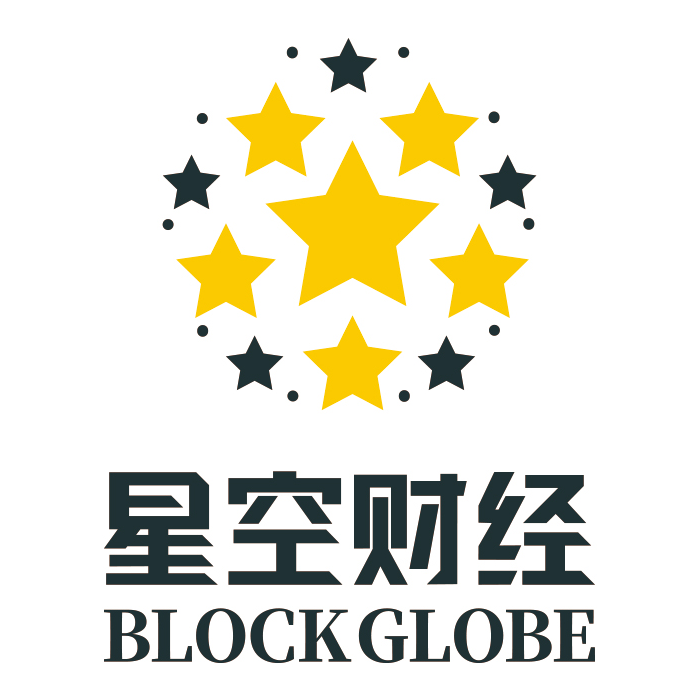【Libra专题】Jane Thomason:Facebook加密货币项目Libra使全球面对全新经济秩序
Jane Thomason:“尽管我们中的一些人知道这是迟早要来的,但Libra项目的发布还是比很多人预期的要更快地将世界带入一个新现实。”

文|Jane Thomason,Fintech Worldwide首席执行官
关于作者:
Jane Thomason女士是全球知名金融科技企业Fintech WorldWide CEO,后者刚刚成功举办了2019年伦敦金融科技周(London Fintech Week 2019),Jane Thomason于2018年被《福布斯》杂志评选为“区块链领域领先社会发展布道者”,被国际知名杂志《The Introducer》评选为“2019年度区块链女性领袖”。
Jane Thomason女士曾获得“联合国女性量子影响人物”大奖,还获得了“全球Top10数字经济前沿女性”称号。
长期以来,Jane Thomason女士非常关注新兴经济体以及前沿科技如何加速消灭世界贫困,改善服务提供等领域话题。同时,她还是英国区块链协会和英国前沿科技协会(Frontier Technology Industry Association)联合创始人。
写在前面:
本文为【分布式金融公开课Libra专题】专家分析系列,由星空财经联合美国知名金融科技和区块链平台Fintech4Good,分布式金融联盟共同推出。
在本专题中,我们尽可能从最全面的维度来集中呈现Facebook Libra项目的革新和影响,同时我们还邀请了全球金融、科技、区块链行业意见领袖,国际组织机构相关负责人,分享他们宝贵的洞见。以期为全球市场,为金融、科技、区块链等行业从业者提供新的思考维度,从而助力产业发展。
关于【分布式金融公开课Libra专题】,请点击Libra专题及下图:

以下为Jane Thomason的分享:
——————————————————————
Jane Thomason:Facebook加密货币项目Libra使全球面对全新经济秩序
尽管我们中的一些人知道这是迟早要来的,但Libra项目的发布还是比很多人预期的要更快地将世界带入一个新现实。Facebook计划明年大规模推广Libra的事实已经大大推动了这一思路。
正如我们所知的,大型科技公司可以比许多国家都拥有更多的权力。大型科技公司拥有庞大而现成的用户网络以及海量数据,这些数据使大型科技公司比竞争对手更具优势。同时,已经拥有的用户也让这些公司更加容易成功。
由此产生的不可避免的冲突是全球治理之争。未来到底是谁,是国家, 是数字公司,亦或是国际机构,能够担负起重构我们现有的的国际体系的使命?现如今,监管机构已经在竭力维护自己的权威。他们希望监管谷歌、Facebook、苹果(Apple)和亚马逊(Amazon)等为全球经济制定新规则的垄断企业。中国的角色不容忽视,中国计划到2030年成为“世界上主要的人工智能创新中心,将中国转变为领先的创新型国家和最大的经济强国”,尽管我们还并不知道其中的细节。
拥有32亿用户的Facebook和Libra协会似乎将与世界上最大的经济体展开竞争。它肯定会让普通民众快速进入加密货币世界,并对银行和保险公司造成可能的颠覆。但它其实具有更广泛的政策含义:Libra背后是那些最大、最富有的公司,包括Visa,Mastercard,PayPal,Uber和eBay。所以这到底是区块链带来的去中心化的承诺,还是只是另一种形式的集权?
“民族国家”将会变成什么样?“民族国家” 出现于17世纪,是历史上一个相对较新的概念。随着互联网的模糊边界和国家体系向全球体系的过渡,传统的民族国家定义方式正在受到侵蚀: 任何人都可以在几分钟内成为爱沙尼亚的电子公民,并在数字经济中进行交易。人们可以加入数字社区和平台,甚至可以加入他们所在地区以外的经济体。

在上周的伦敦金融科技周上,我们终于有机会讨论这些到底对世界意味着什么。来自英国区块链和前沿技术协会(Frontier Technology Association)的巴里•詹姆斯(Barry James)主持了这场辩论,并以自己的评论开场:“全球通用货币的出现只是时间问题。”当下我们理解的货币究竟是否有未来?高伟绅律师事务所(Clifford Chance)的西蒙•格里森(Simon Gleeson)也提出了这样的观点:“我们其实并不需要货币: 我们需要的只是一个全球契约的登记处,”格里森认为,任何交换的价格最终都将以人们愿意接受的价格成交。
来自Credit Kudos的Freddy Kelly向我们展示了科技巨头在承担银行职能方面已经走了多远。他展示了一张幻灯片,列出了苹果(Apple)、亚马逊(Amazon)、谷歌和Facebook这四家科技巨头在支付、贷款、活期账户和保险等传统银行/金融功能上相对传统银行所做的超越。传统金融机构确实有充分的理由感到害怕。
Facebook的举动无疑让全世界的人们不得不睁开眼睛面对数字时代的到来,加入世界新经济秩序的讨论。同时,每个人也在担心如果不受管束,这些科技巨头究竟会对我们的世界带来怎样的影响。
———————————————-
英文原文
Facebook Libracoin Forces World to Confront the New Global Economic Order

Jane Thomason
CEO Fintech Worldwide
Some of us knew this was coming.It had to.
But the announcement of the Libracoin has thrust the world into a new reality rather sooner than many expected. It has pushed the thinking forward dramatically – as Facebook plans to go live with Libra next year and on a huge scale.
We know that the big tech companies wield more power than many countries. Big techs have massive existing customer networks and the enormous quantities of data. Data give big tech firms the edge over competitors. They already have the users, so they are likely to succeed.
The inevitable conflict that will emerge from this is the tussle for global governance. Who, a state or a digital corporation or and international body, will be in charge of an initiative that will challenge the international system as we know it. Regulators are already struggling to assert authority and they want to regulate monopolies such as Google, Facebook, Apple and Amazon that are setting new rules for the global economy. Not to mention the role of China who plan by 2030, to become “the world’s primary artificial intelligence innovation centre, transforming the country into a leading innovation-style nation and the greatest economic power.” No one quite knows what to do about that.
Facebook with 3.2 billion users and Libracoin seems set to compete with the world’s largest economies. It will certainly fast track the general public into the cryptocurrency world and create massive disruption to banks, and insurers but it has much wider policy implications. Behind Libra are some of the biggest and richest corporations including Visa, Mastercard, PayPal, Uber and eBay. Will this just concentrate power, rather than the promise of decentralisation that comes with blockchain?
What will become of the nation state? The nation state is a relatively new concept in history, emerging only in the 1600s. There is no reason to believe that nation states will lead us inexorably into the future. With the internet blurring borders and national systems transitioning to global systems the traditional ways of defining a nation state are being eroded. Anyone can become an e-Citizen of Estonia in a few minutes and begin transacting in a digital economy. People can join digital communities and platforms and indeed economies outside of the geography they are located in.
At London Fintech Week last week, we had a chance to debate and discuss just what this means for the world. Barry James from the British Blockchain and Frontier Technology Association chaired the debate and opened with the comment, “It is only a matter of time before we get global money.” The future of money was widely questioned, not only fiat, but Simon Gleeson of the law firm Clifford Chance posed the view that “there’s no need for money: all we need is a central register that keeps track of obligations.” Gleeson’s view is that the value of any form of exchange is in the end what people are prepared to accept that it is.
Freddy Kelly from Credit Kudos showed us just how far big tech companies have already gone in undertaking functions of banks. He presented a slide, where he listed four tech giants, Apple, Amazon, Google and Facebook against four traditional banking or finance functions: payments, lending, current accounts and insurance. You might be surprised to see how many boxes were already ticked! Traditional finance institutions have good reason to be afraid.
The Facebook move has certainly galvanised the world into taking their heads out of the digital sand and start debating the new economic order that is upon us. Everyone is worried about the tech giant genie who is now well and truly out of the bottle.
About Jane Thomason:
CEO of Fintech Worldwide. Frontier Technology and social impact thought leader, recognised in Forbes Magazine (2018) as Blockchain’s Leading Social Development Evangelist, and The Introducer (2019) as a Blockchain woman leader.
Focussed on emerging economies and how Frontier Technologies can accelerate poverty reduction and improve service delivery.
Lead author of “Blockchain Technologies for Global Social Change” IGI Global 2019.
Industry Associate, University College London, Centre for Blockchain Technology.
Co-founder British Blockchain and Frontier Technology Industry Association.
Section Chief Editor, Blockchain for Good, Frontiers in Blockchain.
Top 10 Digital Frontier Women and UN Decade Of Women Quantum Impact Champion.
Board and CEO roles in tertiary hospitals and health care sector in Australia and globally.
Founder of an international development company in 1999, built it to $50 m revenue , merged with Abt Associates and led to achieve a tripling of revenue and diversification to $250m with 650 staff. Resigned as CEO in March 2018 to commit full time to a global digital transformation agenda.
Multiple appointments including Digital Transformation Adviser to the Partnership for Maternal, Neonatal and Child Health, Digital Transformation Sub-Committee Chair, Kina Bank Papua New Guinea, and Fellow of the Australian Digital Commerce Association.
Adviser to Blockchain start-ups with social impact applications and is currently working with start-ups to develop Blockchain use cases in emerging economies.
(完)
更多【Libra专栏】专家分享:
【Libra专题】德鼎创新基金合伙人王岳华:关于Libra的本质
http://www.blockglobe24.com/show-college-3598.html
【Libra专题】Fintech4Good主席张晓晨:十大要点 直击Facebook加密项目Libra的精髓
http://www.blockglobe24.com/show-college-3584.html
【Libra专题】亚洲区块链基金会董事郭小川:Libra为代表的世界货币趋势不可阻挡
http://www.blockglobe24.com/show-college-3581.html
原创文章,作者:DrJaneThomason,如若转载,请注明出处:


